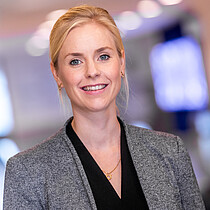

When you come home from work, what are your memories of your working day? Do you reflect on the to-do list that you completed, or do you think about the interactions you’ve had with your colleagues? Despite the continuous digitalisation of our workforce, people have an innate need to belong. Therefore, the daily interactions people have at work can play a big role in their well-being.
Our research focuses on understanding how small, everyday interactions among co-workers can foster a sense of inclusion. We call these micro-interactions, and have identified and classified them. Regardless of one’s position in the organisation, everyone has the opportunity and the agency to show inclusive gestures towards their co-workers.
Over the past few decades, a growing number of organisations have chosen to focus attention on the pursuit of inclusivity. But while companies have concentrated on initiating inclusive policies and promoting inclusive leadership, the role of peer interactions still tends to be overlooked. We believe this misses the point: that daily interactions with co-workers can have big consequences in how individuals experience their work life. Most of us can recall a time when our co-workers did something that made us leave work with a smile on our face.
To understand the role of co-workers in facilitating inclusion, we conducted a number of studies to understand what inclusive co-worker behaviour looks like. We asked employees from different countries, e.g., USA, Germany, the Netherlands and Singapore, what types of behaviours their co-workers regularly show that makes them feel included at work. Participants in our studies described a variety of behaviours, both verbal and non-verbal, low effort and high effort, in formal and informal settings.
In general, we distinguished two main ways in which co-workers can facilitate inclusion through their interactions: instrumental inclusive behaviours and relational inclusive behaviours.

Faculty of Management, Economics and Social Sciences
University of Cologne, Germany

Verbal: Switching to a language everyone can understand. Complimenting someone on their work achievements.
Non-verbal: Greeting everyone in the same manner (e.g, friendly smile). Acknowledging someone non-verbally when they are speaking (e.g., making eye contact, nodding).
Overt: Giving positive feedback when someone shares their opinion (Online: comments or animations. In person: verbal or non-verbal). Recommending someone for a work task which might help them to advance in their career.
Subtle: Making space for someone to join the conversation (e.g., saving a chair). Creating a moment of silence to ensure everyone has the opportunity to contribute.
Formal: Giving opportunities to demonstrate competence. Accommodating to everyone’s needs when scheduling work processes such as meeting times.
Informal: Informal Inviting everyone to informal activities (social drinks, lunches, dinners, etc.) Asking someone how they are doing before diving in to work tasks.
Instrumental inclusive behaviours are actions that help co-workers in leveraging their unique attributes, for example by encouraging them to share their opinions, asking for input in decision-making processes, and planning work processes in such a way that all co-workers can be present.

One example is helping someone succeed at work by encouraging a co-worker to share their point of view. In low intensity examples of instrumental inclusive behaviour, this could occur by creating space with a moment of silence after they have spoken or showing them encouraging non-verbal behaviour by making eye contact or smiling at them. A slightly higher intensity behaviour could be to give them the opportunity to speak up by asking them for their opinion directly.
You could also encourage them to share more frequently by endorsing the points they make, for example by mentioning that they made an excellent point or that you agree with them.
Relational inclusive behaviours are actions that help co-workers connect with the work group, for example by greeting them, acknowledging them non-verbally through eye contact or smiling, or inviting them to join conversations. An example of these types of behaviours could relate to making co-workers feel like they belong in the work group, for example by greeting a co-worker and displaying friendly non-verbal behaviour like smiling at them.
Alternatives of a higher intensity could be to ask them to engage in a social activity at work (having coffee together or sharing lunch, for example), or to invite them to an activity outside traditional operational office hours.
Our studies show the importance of the role of co-workers in achieving inclusion through these micro-interactions. Unfortunately, it’s almost inevitable that organisations might see this as a reason and an opportunity to shift the responsibility of inclusion to the co-worker level.
But we know from previous research that efforts towards inclusion should be present at all levels in the organisation. This means organisations must commit greater effort to the development of inclusive policies, and make sure that corporate leadership itself also actively tries to facilitate inclusion.
Building on our research, we have developed a validated scale and a training intervention aimed at facilitating these micro-inclusive interactions.
Through our study, we have sought to expand the knowledge of peer interactions that facilitate inclusion every day. With the development and validation of a scale, we believe we are helping to open doors to a better understanding of how peer interactions can influence inclusion and therefore affect organisationally relevant outcomes for the better.
To further this, it would be interesting and helpful to understand which factors influence the occurrence and results of inclusive co-worker behaviour. In the meantime, maybe we might all strive to accentuate the positive, by being more deliberate in how we interact with our co-workers.
The good news is that we do not need to wait for the next organisational change programme – seemingly small acts of inclusion can make a big difference for the feelings of inclusion and well-being among co-workers.

Science Communication and Media Officer
Rotterdam School of Management, Erasmus University (RSM) is one of Europe’s top-ranked business schools. RSM provides ground-breaking research and education furthering excellence in all aspects of management and is based in the international port city of Rotterdam – a vital nexus of business, logistics and trade. RSM’s primary focus is on developing business leaders with international careers who can become a force for positive change by carrying their innovative mindset into a sustainable future. Our first-class range of bachelor, master, MBA, PhD and executive programmes encourage them to become to become critical, creative, caring and collaborative thinkers and doers.
